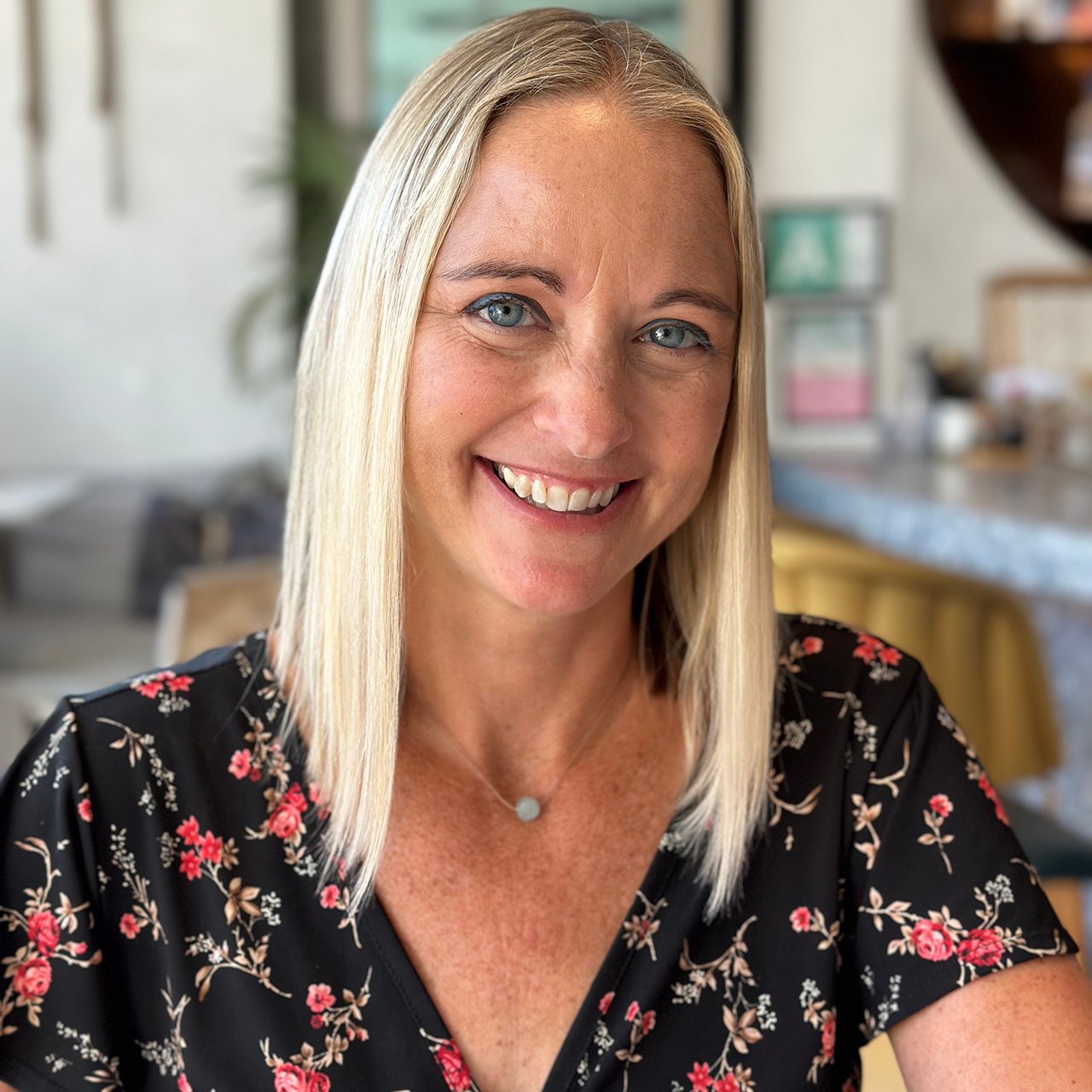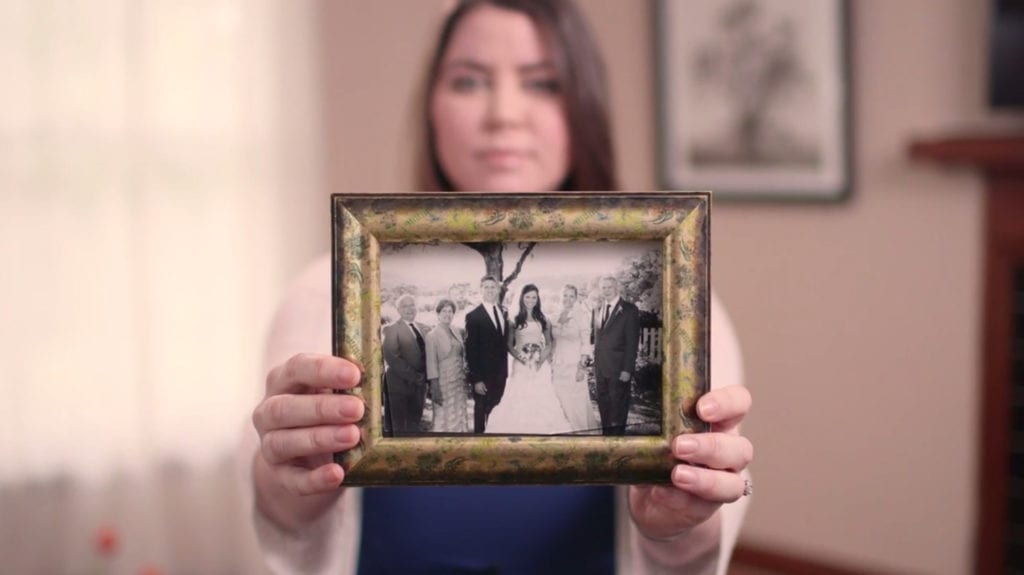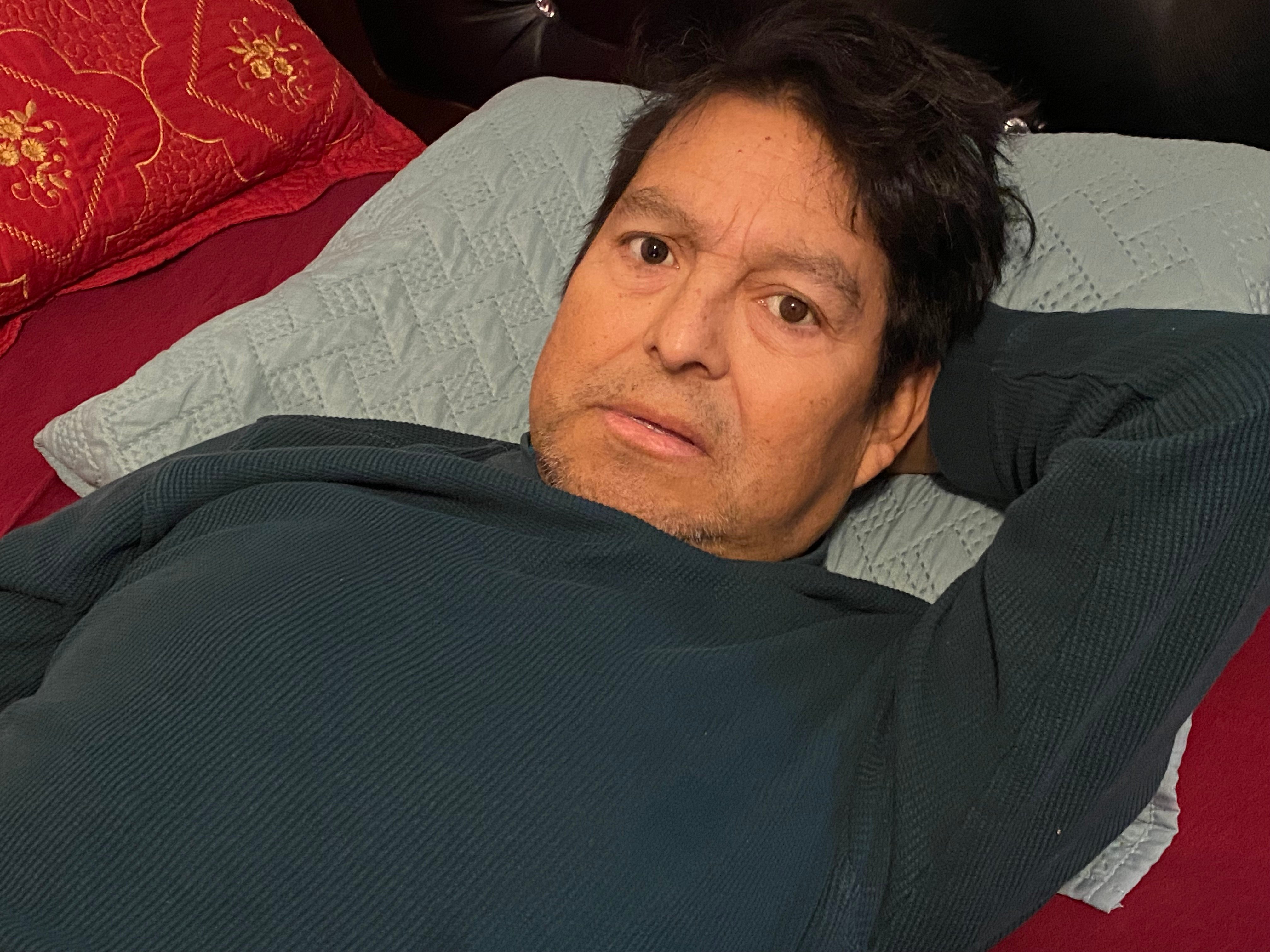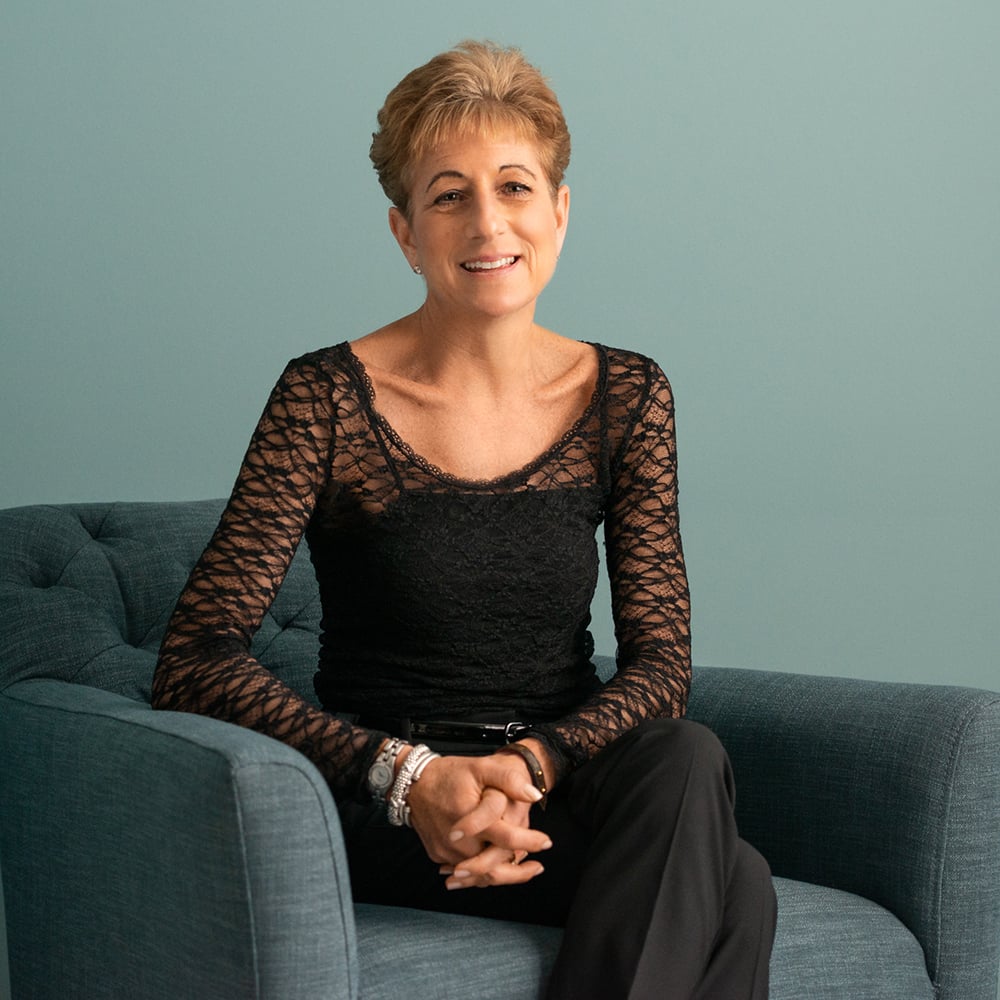Lisa Pahl, LCSW, shared her story in February of 2024.
“She sure talked about death a lot,” is likely what people will say once I’m no longer here.
I learned at an early age that death was just a part of life. Growing up on a farm, the normalization of death helped prepare me for working within hospice. But when my dad was diagnosed with leukemia in his 40s, it put living with intention into perspective. Fast forward to today, he’s in his 70s and doing well, managing his cancer as a chronic illness. Back then, however, he thought he was dying, and because of that something amazing happened: He faced his mortality, took inventory of his life and decided he wanted to make a lot of changes. He shifted from being very work-driven to heavily focusing on his relationships.
Whether we know that death is close or seemingly far away, if we think about the fact that we’re going to die, we all have the opportunity to take inventory of our lives and put in perspective what we want to do with our time.
Then, when I started working in hospice, I began to see a little bit of that as well. Lamentably, I also observed that even in hospice too often either the patient or their loved ones were unwilling to talk about the fact that they are dying.
Beyond being a trained social worker, supporting and empowering others is just as much my nature. I’m passionate about helping people explore and talk through their thoughts and feelings on all things related to the end of life. And the beautiful thing about working in hospice is that people are open to your support and compassionate guidance.
One of the families I compassionately attended to resulted in a bond that exceeded the typical timeframe of aftercare
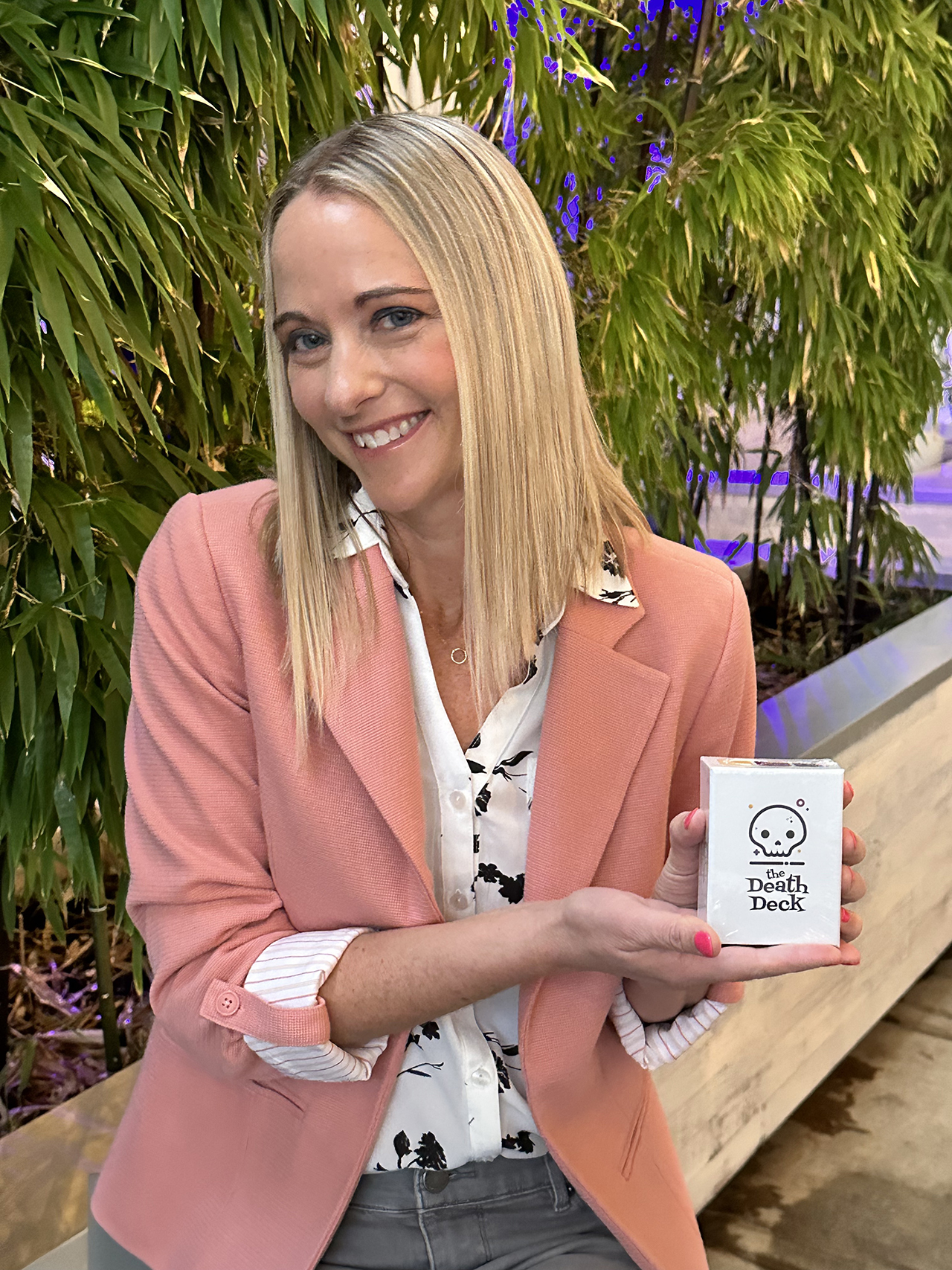
and ultimately led to the creation of The Death Deck. Following the passing of her spouse, Lori and I developed a friendship where she talked openly about her grief and we processed our shared frustration about death being a taboo topic in American culture, even in the face of a serious diagnosis. Together we developed The Death Deck card game to encourage life-changing dialogue about the end of life in a nonthreatening manner. The goal is to give people practice in having these conversations, ideally before a medical crisis or a life-limiting diagnosis.
Prior to working in hospice, I worked in emergency medicine, and what I’ve consistently observed is that conversations, not paperwork, give people confidence in making decisions on their loved one’s behalf. Writing your wishes down on a piece of paper gives you a false sense of confidence that you’ve done what you needed to do. Unless you talk about it and make sure your wishes are understood, your loved ones are still going to struggle to make these decisions. And that second guessing is so hard in grief.
Once people make a commitment to have these conversations with someone that they care about, I recommend they start by sharing their own end-of-life preferences. For example, if I as an adult child am trying to get my parents to plan, it implies that I’m not going to die, only them. In contrast, if I lead by sharing, “I just did my advance directive, and I want to share with you what I want in these situations,” loved ones tend to share their thoughts transparently. They will either agree or feel very differently, and they will want to tell you that.
Whether it’s in hospice and something anticipated or a medical crisis, it’s a chaotic and emotional time. Your avoidance of the fact that you’re going to die affects your loved ones who will have to make decisions in your absence or in the absence of your guidance. Planning is a respectful gift to your loved ones; it’s a way to take care of them.
When someone has a life-limiting illness, they tend to lose so much control. As a hospice social worker, my job is to empower people, and it’s incredibly empowering for people to know what their options are. When we talk about options for patients, they can take a little bit of control over their lives. And in California, where medical aid in dying is available, people at the end of life have even more potential for control. For some people, just knowing they have access to an aid-in-dying prescription allows them to live out their final days at peace and with a sense of control over their situation, whether they take the medication or not.
I've had the privilege of accompanying many patients along their medical aid-in-dying journey. In that experience, I have had the most rich and beautiful conversations with patients and their loved ones because it’s all out in the open. With medical aid in dying, there is no avoiding the topic of death. Unlike other situations, it is the conversation.
Some people have very few details they want to control, and others want to do legacy work and get very intentional. Because there is planning and loved ones present, there is mental preparation and acceptance for death. There’s always a ton of love in the room, and there are really powerful, beautiful goodbyes that would bring anyone to tears. There’s just such beauty in a death when someone is dying the way they want and their loved ones are supporting them in that. It is really intense being in that space, but it’s also life-affirming.
Talking with your loved ones about the end of life doesn’t make death happen any sooner; it only improves the likelihood that you’ll have the death you want. And when you have these meaningful conversations, you feel closer to the people you are engaging with. There’s so much strengthening of connection when we talk about the things that scare us.


